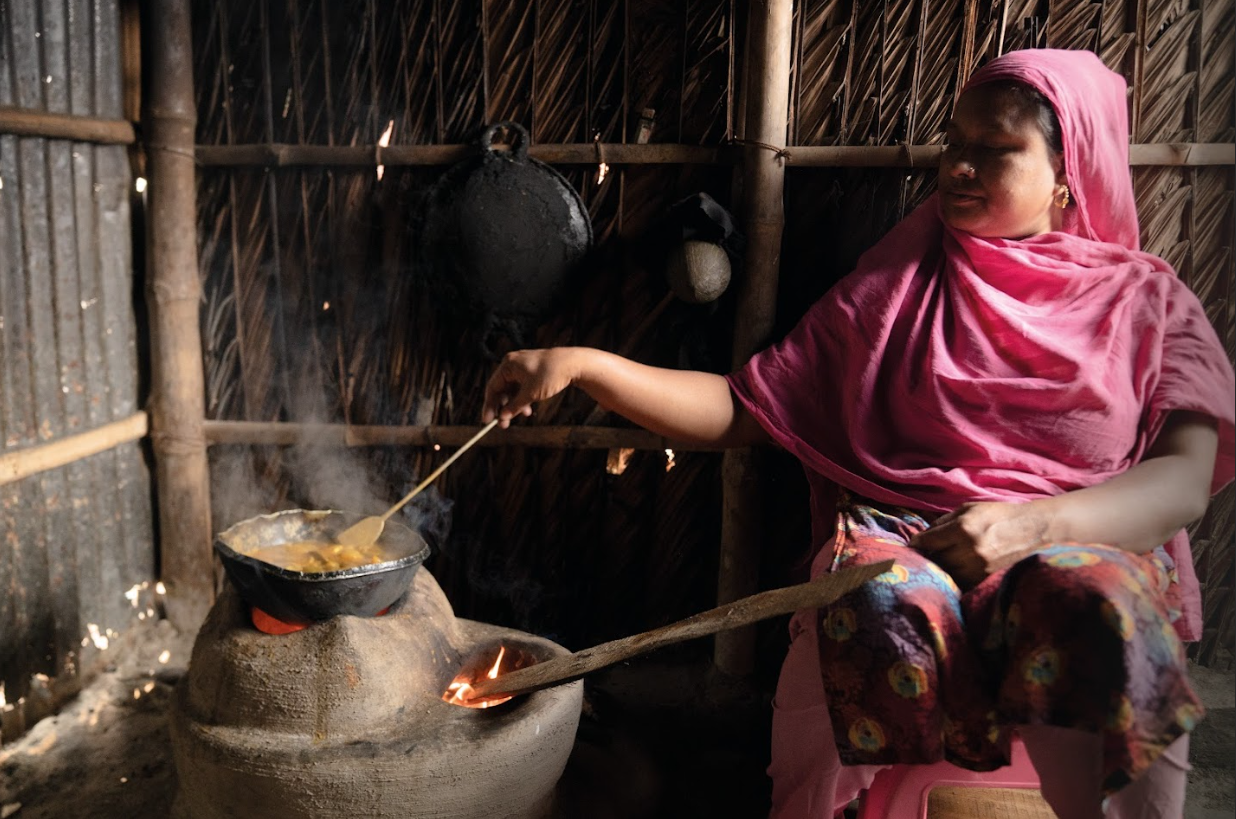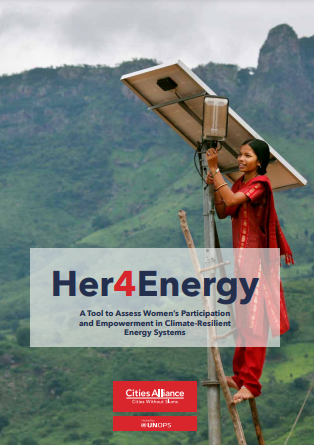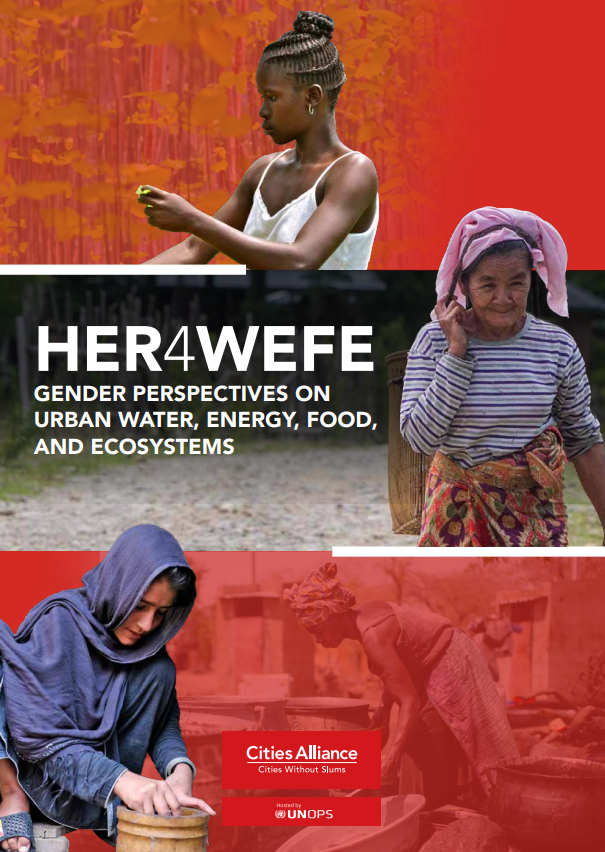- Who We Are
- How We Work
- Regional / Country Initiatives
- Legacy
- Core Themes
- Working Groups
- Portfolio & Results
- Newsroom
- Resources
Her4Energy Tool

A tool to assess Women’s Participation and Empowerment in Climate-Resilient Energy Systems
Despite being a crucial aspect of the fight against climate change and greenhouse emissions, energy access, production and management remain deeply gendered. In the least developed countries of Africa and Asia for instance, up to 90 per cent of energy consumption in households comes from traditional biomass fuels primarily gathered and managed by women, a physical and time consuming activity adding to women’s domestic burden and endangering their health. Yet, the representation of women both in leadership roles and as employees within the energy sector remains alarmingly low.

As the global energy sector shifts towards cleaner and renewable resources that are less harmful for the environment, such as advanced biomass cookstoves or energy issued from sources replenishing naturally, it is crucial to ensure women’s needs are taken into consideration and their voices heard for a just and equitable energy transition.
Following the tools previously developed by Cities Alliance Her4Water and Her4Climate, the tool Her4Energy is designed to mainstream gender perspectives in energy projects and policies. Addressing critical issues such as energy poverty, equitable access to clean energy, and the promotion of women’s roles as decision-makers and innovators in energy solutions by integrating gender considerations, this tool seeks to transform energy policies and projects into inclusive, sustainable, and resilient initiatives that benefit all community members.
The tool is designed to address gender disparities and enhancing women’s empowerment in the context of climate‑resilient energy systems. It employs a series of targeted inquiries that facilitate the collection of both qualitative and quantitative data, providing valuable insights for assessing women’s vulnerability in the sector and their level of engagement, participation and leadership in the energy governance and decision-making process.
Her4Energy encourages the collaboration of diverse stakeholders, including policymakers, community leaders, and private sector partners, to create energy solutions that are both innovative and equitable. Through an inclusive and participative approach empowering girls and women to actively participate and take leadership in the energy sector, the tool aims to bridge the gender gap in energy access and empower women as key agents of change in the transition to sustainable energy systems.


